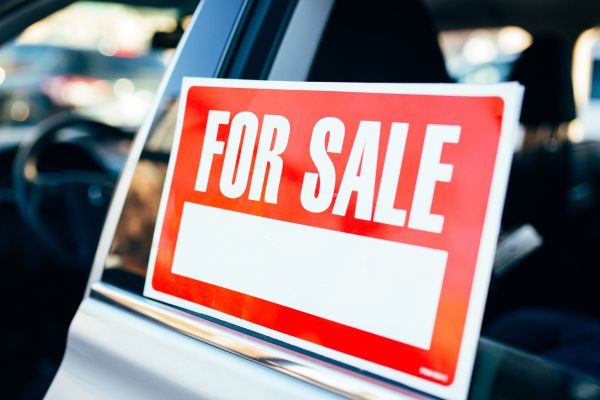
The aftermath of an accident involving a commercial vehicle or tractor trailer can be overwhelming, especially when it comes to dealing with the repercussions on your vehicle’s value. Despite repairs, your car may never regain its pre-accident market value, a fact that is often overlooked by insurance companies. However, as a vehicle owner, you have the right to seek compensation for this loss in value, known as Diminished Value (DV). This comprehensive guide aims to navigate you through the process of understanding and claiming your vehicle’s diminished value, ensuring you are fully compensated. Still have questions after reading this? Contact us today!
Understanding Diminished Value
Diminished Value (DV) is the reduction in a vehicle’s resale value resulting from a history of accidents and repairs. Even after your vehicle has been meticulously repaired, its history of damage can deter future buyers, significantly lowering its market value. This is particularly pertinent in today’s digital age, where vehicle history reports are readily accessible to consumers, making it almost impossible to conceal past accidents.
The Legality of Diminished Value Claims
In several jurisdictions, including Florida, legal precedents such as the McHale v. Farm Bureau Mutual Insurance Co. case, establish the responsibility of insurance companies to compensate for the diminished value of a vehicle post-repair. This legal foundation empowers vehicle owners to pursue compensation beyond mere repair costs, addressing the broader impact of an accident on the vehicle’s value.
Filing a Diminished Value Claim in a Tractor Trailer Accident
A Diminished Value claim is a formal request to an insurance company, demanding compensation for the loss in value of a repaired vehicle. It’s important to understand that this claim is directed towards the insurance provider of the at-fault party in the accident. The essence of this claim lies in holding the insurance company accountable for the full extent of your loss, which includes both the repair costs and the subsequent devaluation of your vehicle.
Navigating the Claim Process
- Documentation is Key: Start by gathering all necessary documentation, including repair bills, accident reports, and a thorough assessment of your vehicle’s diminished value from a qualified professional.
- Professional Valuation: Obtain a professional valuation of your vehicle’s diminished value. This assessment can serve as a robust foundation for your claim, providing concrete evidence of the financial impact of the accident.
- Engage with Legal Expertise: Considering the complexities involved in such claims, consulting with legal professionals specializing in auto accidents and diminished value claims can significantly enhance your chances of success. Firms with a track record in this domain can offer invaluable guidance and representation, ensuring your rights are fully upheld.
Diminished Value Claims in Tractor Trailer Accidents
While insurance companies might not readily disclose the possibility of a diminished value claim, being informed and proactive can make a significant difference in your post-accident recovery process. Understanding your rights and the intricacies of Diminished Value claims can empower you to secure the compensation you rightfully deserve after a tractor trailer accident, mitigating the financial impact of the accident on your vehicle’s worth. Remember, the journey to fair compensation begins with knowledge and is fortified by expert legal support. Talk to Paul Knopf Bigger today for a free case evaluation and consultation.
Read More Here :
- How do I pursue a claim for damages to my vehicle in Florida?
- Involved in an automobile accident? What should you do?
- My vehicle has been repaired, BUT now it isn’t worth as much! Is there anything I can do?
- What about damage to my vehicle?
- What if a member of my family dies as a result of an auto accident with a tractor-trailer?
- What is a Combined Single Limit (CSL) policy?
- What is automobile negligence?
- What is Bodily Injury Coverage?
- What is Commercial Liability Coverage?
- What is mandatory insurance coverage in the State of Florida?
- What is Medical Payment Coverage or MedPay?
- What is Personal Injury Protection? (PIP)
- What is the Florida “No Fault” Law?
- What is Uninsured/Underinsured Motorist Coverage (UM)?
- What makes an accident with a tractor trailer different than a regular automobile accident?
- Who is going to pay for your medical bills?
- How long do I have to file a lawsuit after a commercial truck accident in Florida?
- What are the common causes of commercial truck accidents and how does it affect my case?
- Can I seek compensation in Florida if I was partially at fault in the trucking accident?
- How is liability determined in a commercial trucking accident in Florida?
- What types of compensation are available in a commercial truck accident case in Florida?
- How do federal and state regulations impact a commercial trucking accident claim?
- What should I do if the trucking company or their insurance contacts me after the accident?
- How can a Florida attorney help me in a commercial trucking accident case?
- What evidence is crucial for proving fault in a commercial truck accident in Florida?
- Are there specific challenges in pursuing a claim in Florida against a commercial trucking company compared to a regular automobile accident claim?
